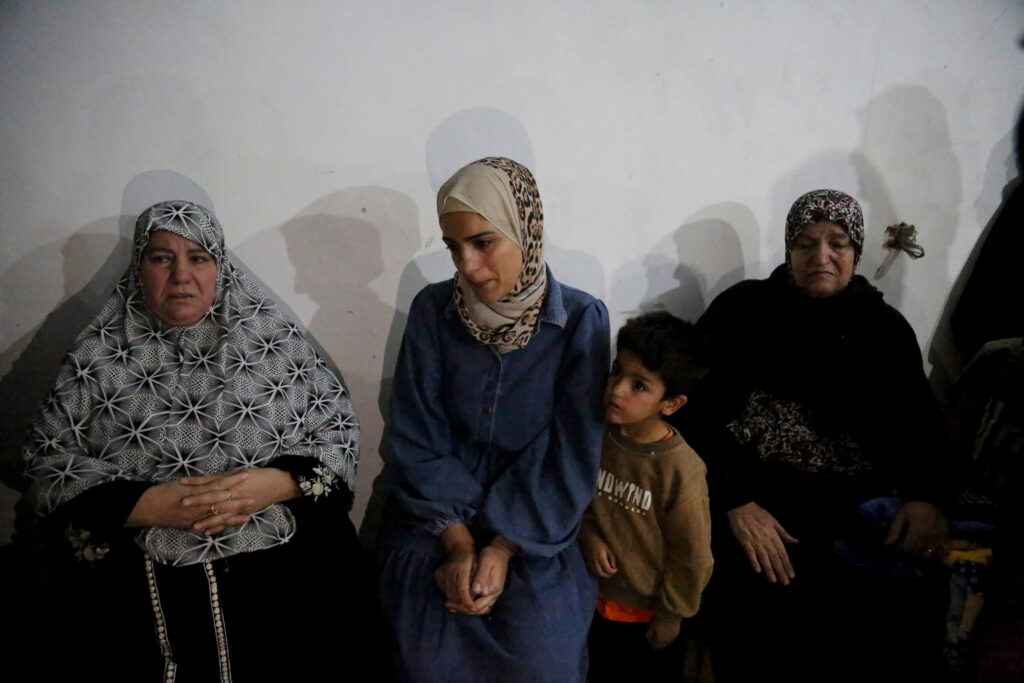
The Gaza conflict may have reached a tenuous ceasefire, bringing the notion of a Palestinian state back into global discussions. Yet, the path to peace remains fraught with challenges, particularly as violence in the West Bank poses a significant threat to stability. For Palestinians to harbor less suspicion and animosity towards Israel, the latter must provide fewer reasons for such sentiments to persist.
An investigation by The Associated Press last week underscores the distance yet to be traveled towards peace, highlighting not only the situation in Gaza but also the escalating violence in the West Bank. According to United Nations data, which Israel does not dispute, at least 18 children under the age of 15 have been killed by Israeli live fire in the West Bank this year. This follows the tragic deaths of 29 children in 2023 and 23 in 2024.
Tragic Losses and Unanswered Questions
The circumstances surrounding these deaths are varied and heartbreaking. Some children were killed during Israeli military raids in densely populated neighborhoods, while others fell victim to sniper fire in seemingly peaceful areas. The Israeli army maintains that its open-fire regulations prohibit deliberate targeting and has initiated some investigations. However, it remains unclear if any punitive measures have been taken. Families of the deceased report receiving scant information from the military regarding the incidents or any subsequent actions.
Israel’s security concerns in the West Bank are not unfounded. The region’s strategic significance is undeniable, as it encircles Jerusalem on three sides and overlooks Tel Aviv and the coastal plain. An attack from this vantage point could have catastrophic consequences, especially if a group like Hamas were to seize control.
“The need for Israel’s security cannot justify the killing of children — not one, not 18, not 29.”
For Palestinians living in the West Bank, the fear that their children could become the next victims is a constant, harrowing reality. This fear undermines any hope for a lasting peace.
Heartbreaking Stories of Innocence Lost
Among the children whose lives were tragically cut short this year are Layla, age 2, Rimas, age 13, and Mahmoud, age 14. Their stories, as collected by the AP, paint a grim picture of the ongoing conflict.
Layla was sitting on her mother’s lap in the Jenin refugee camp when an Israeli sniper’s bullet pierced their second-floor window, striking her in the skull. Despite efforts to save her, Layla succumbed to her injuries en route to the hospital. The army has stated that the incident is under investigation.
Rimas was playing outside during an Israeli operation in Jenin when she was shot in the back. Her mother, Rudaina, recounted the harrowing moments as she pleaded with soldiers to stop firing. The family was forced to obtain a special Israeli permit to bury Rimas, and the army has yet to provide further details on the investigation.
Mahmoud was among six people killed in an airstrike targeting militants outside the Garabiya family home. The army acknowledged civilian casualties but has not indicated any investigation into the incident.
“These stories, repeated so frequently after so many decades, are enough to boil the blood of any normal person.”
Historical Context and Current Challenges
The violence in the West Bank is not a new phenomenon. Israeli philosopher Yeshayahu Leibowitz warned in the aftermath of the 1967 Six-Day War that the occupation of the West Bank and Gaza would corrupt Israeli society and erode its moral standing. His predictions have, unfortunately, proven prescient.
Personal accounts from journalists and residents alike further illustrate the pervasive nature of the conflict. The tragic death of a newborn in Nablus due to ambulance delays at an Israeli checkpoint in 2002, and the killing of a cameraman by a stray bullet in 2003, serve as stark reminders of the human cost of this protracted conflict.
Under Prime Minister Benjamin Netanyahu’s government, the situation has deteriorated further. Settler violence, often met with tacit approval from the government, has reached unprecedented levels. Such provocations threaten to ignite a third intifada, a scenario some far-right radicals might welcome as a means to expel Palestinians from the region.
The Path Forward: Separation and Hope
As violence continues to escalate, Israelis must confront uncomfortable truths. Accepting the current state of affairs as reasonable or moral is increasingly untenable. The cycle of violence can only be broken through a clear and genuine separation between Israelis and Palestinians, offering hope for normalcy on both sides.
Without meaningful change, the prospect of further violence looms large, with potentially disastrous consequences for both Israelis and Palestinians. The international community, alongside local leaders, must work towards a solution that prioritizes peace and the protection of innocent lives.





